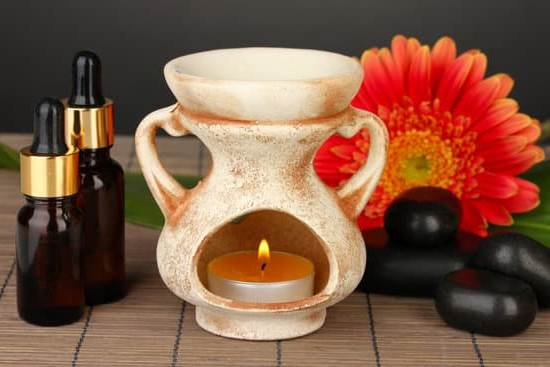Aromatherapy, the therapeutic use of essential oils, has gained popularity in providing holistic support for various health conditions. When it comes to cancer patients, aromatherapy offers a natural and non-invasive way to manage symptoms and improve overall well-being. The benefits of aromatherapy on cancer patients are vast, including alleviating pain, reducing nausea, and combating fatigue.
For cancer patients undergoing treatment, managing symptoms and side effects is crucial to enhancing their quality of life. Aromatherapy utilizes the aromatic properties of essential oils to promote relaxation, reduce stress, and provide comfort during difficult times. The gentle yet powerful nature of essential oils makes them a gentle addition to traditional cancer therapies.
Research supports the effectiveness of aromatherapy in improving the physical and emotional symptoms experienced by cancer patients. The science behind aromatherapy reveals its ability to positively impact mood, reduce anxiety, and even enhance sleep quality. By incorporating aromatherapy into their care regimen, cancer patients can experience relief from various symptoms while also enjoying a sense of calm and well-being.
Understanding the Use of Essential Oils in Aromatherapy for Cancer Patients
Aromatherapy, the practice of using essential oils for therapeutic purposes, has gained recognition as a complementary therapy in cancer care. Essential oils are concentrated plant extracts that are known for their aromatic and medicinal properties. When used correctly, these oils can have a positive impact on the physical and emotional well-being of cancer patients.
Choosing the Right Essential Oils
When it comes to using aromatherapy for cancer patients, it is crucial to select the appropriate essential oils. Some essential oils have soothing and calming effects, which can help alleviate anxiety and improve sleep quality. Others have anti-inflammatory properties that may assist in managing pain and reducing discomfort. Cancer patients should work with a qualified aromatherapist or healthcare provider to determine which essential oils are safe and beneficial for their specific needs.
Methods of Application
Essential oils can be administered in various ways, including inhalation, massage, or diffusion. Inhalation involves breathing in the aroma of the oils through methods like steam inhalation or using a diffuser. Massage with diluted essential oils can help reduce muscle tension and promote relaxation. Diffusing essential oils into the air can create a calming environment that enhances overall well-being. Each method of application offers unique benefits for cancer patients, depending on their symptoms and preferences.
Safety Precautions
While aromatherapy can provide many benefits for cancer patients, it is important to exercise caution when using essential oils. Some individuals may have allergies or sensitivities to certain oils, so it is essential to perform a patch test before widespread use.
Additionally, pregnant or breastfeeding women and individuals with certain medical conditions should consult with their healthcare provider before incorporating aromatherapy into their treatment plan. By following safety guidelines and working closely with knowledgeable professionals, cancer patients can experience the positive effects of aromatherapy while minimizing any potential risks.
The Science Behind Aromatherapy and Its Effects on Cancer Patients
Aromatherapy, a complementary therapy that utilizes essential oils for various health benefits, has gained recognition for its potential positive effects on cancer patients. While aromatherapy is not a cure for cancer, it can provide comfort and support to individuals undergoing treatment for the disease. The use of essential oils in aromatherapy can help alleviate some of the side effects and symptoms associated with cancer and its treatments.
There is scientific evidence supporting the benefits of aromatherapy on cancer patients. Essential oils contain bioactive compounds that can interact with the body through inhalation or topical application, leading to physiological and psychological changes. Studies have shown that certain essential oils have anti-inflammatory, analgesic, and calming properties that can be beneficial for managing symptoms such as pain, nausea, and fatigue in cancer patients.
To understand how aromatherapy works on a physiological level, it is important to consider the olfactory system and the limbic system in the brain. When essential oils are inhaled, they stimulate the olfactory nerve receptors, which then send signals to the limbic system. The limbic system is responsible for regulating emotions, behavior, and memory. This direct connection between scent and emotions explains why aromatherapy can have a powerful impact on mood and overall well-being in cancer patients.
- Aromatherapy helps reduce stress levels in cancer patients
- Certain essential oils may have antibacterial properties
- Aromatherapy can improve quality of sleep
Benefits of Aromatherapy in Managing Cancer Symptoms Such as Pain, Nausea, and Fatigue
Aromatherapy has been increasingly recognized for its potential benefits in managing symptoms commonly experienced by cancer patients, such as pain, nausea, and fatigue. Research has shown that the use of essential oils in aromatherapy can have a positive impact on the physical and emotional well-being of individuals undergoing cancer treatment.
One of the key benefits of aromatherapy for cancer patients is its ability to provide natural pain relief. Certain essential oils, such as lavender, peppermint, and chamomile, have analgesic properties that can help alleviate discomfort associated with cancer-related pain. Additionally, the calming and soothing effects of these oils can also help reduce anxiety and stress levels in patients dealing with chronic pain.
Nausea and vomiting are common side effects of cancer treatments like chemotherapy and radiation therapy. Aromatherapy offers a gentle yet effective way to manage these symptoms, with essential oils like ginger, lemon, and spearmint known for their anti-nausea properties. Inhaling these oils or using them in a diffuser can help ease feelings of queasiness and improve overall quality of life for cancer patients undergoing treatment.
Moreover, fatigue is another prevalent issue among cancer patients, often caused by the disease itself or as a side effect of treatment. Certain energizing essential oils like citrus scents (e.g. orange or grapefruit) or invigorating blends can help boost energy levels and combat fatigue.
By incorporating aromatherapy into their daily routine, cancer patients may experience increased vitality and improved overall sense of well-being during their treatment journey. The benefits of aromatherapy on managing symptoms for cancer patients are undeniable, providing a holistic approach to care that addresses not just physical ailments but also emotional well-being throughout the treatment process.
Case Studies and Personal Stories of Cancer Patients Benefiting From Aromatherapy
Aromatherapy has gained recognition for its potential benefits in supporting cancer patients during their treatment journey. Many individuals undergoing cancer therapy have reported positive experiences with aromatherapy, finding relief from symptoms such as pain, nausea, and fatigue. By incorporating essential oils into their wellness routine, cancer patients have been able to enhance their overall well-being and quality of life.
One of the key benefits of aromatherapy on cancer patients is its ability to provide emotional support and reduce anxiety levels. The soothing scents of certain essential oils can help alleviate feelings of stress and promote a sense of calmness, which is particularly beneficial for those navigating the challenges of cancer treatment. Additionally, aromatherapy has been shown to improve sleep quality for some cancer patients, allowing them to rest more comfortably during this trying time.
Furthermore, case studies and personal stories have highlighted the positive impact that aromatherapy can have on managing chemotherapy side effects. Patients have reported experiencing less intense nausea and vomiting after incorporating specific essential oils into their care regimen. This natural approach to symptom management offers a gentle alternative or complementary method to traditional treatments, showcasing the potential benefits of integrating aromatherapy into cancer care plans.
| Benefits of Aromatherapy on Cancer Patients | Supporting Data |
|---|---|
| Emotional Support and Anxiety Reduction | Aromatherapy promotes a sense of calmness and reduces stress levels in cancer patients. |
| Improved Sleep Quality | Essential oils help enhance sleep patterns for individuals undergoing cancer treatment. |
| Management of Chemotherapy Side Effects | Aromatherapy aids in reducing nausea and vomiting related to chemotherapy in some cancer patients. |
Best Essential Oils for Cancer Patients and How to Use Them Safely
Aromatherapy, the practice of using essential oils to enhance physical and psychological well-being, has been increasingly recognized for its potential benefits in supporting cancer patients. Essential oils are highly concentrated plant extracts that have been used for centuries for their healing properties.
When used appropriately and safely, certain essential oils can offer relief from common symptoms experienced by cancer patients, such as pain, nausea, and fatigue. It is important for cancer patients to consult with their healthcare providers before incorporating aromatherapy into their treatment plan to ensure it complements their current regimen.
Some of the best essential oils for cancer patients include:
- Lavender: Known for its calming properties, lavender essential oil can help reduce anxiety and improve sleep quality in cancer patients undergoing treatment.
- Peppermint: This refreshing essential oil is commonly used to alleviate nausea and boost energy levels in cancer patients experiencing chemotherapy-induced fatigue.
- Frankincense: With its anti-inflammatory and analgesic properties, frankincense essential oil may help manage pain and inflammation in cancer patients.
When using essential oils safely for aromatherapy, cancer patients should consider the following tips:
- Dilute essential oils with a carrier oil before applying them to the skin to prevent irritation.
- Avoid ingesting essential oils unless under the guidance of a qualified healthcare provider.
- Perform a patch test on a small area of skin before using an essential oil topically to check for any adverse reactions.
By incorporating these best practices and selecting appropriate essential oils, cancer patients can safely experience the benefits of aromatherapy as a complementary therapy alongside traditional cancer treatments. It is crucial for individuals to approach aromatherapy with caution and seek guidance from healthcare professionals to ensure safe and effective use during cancer care.
Aromatherapy Techniques for Cancer Patients
Aromatherapy offers cancer patients a complementary therapy that can help alleviate symptoms, improve mood, and provide comfort during treatment. One of the key techniques in aromatherapy for cancer patients is inhalation. Inhaling essential oils through diffusers or simply by taking deep breaths with a few drops of oil on a cotton ball can have calming effects on the mind and body. This method allows the aroma to stimulate the olfactory system, influencing emotions and promoting relaxation.
Additionally, massage therapy using essential oils can benefit cancer patients by reducing stress, anxiety, and muscle tension. When diluted properly, essential oils such as lavender, chamomile, or peppermint can be applied topically during gentle massages. The combination of aromatherapy and massage not only promotes physical relaxation but also enhances emotional well-being. For cancer patients undergoing chemotherapy or radiation treatments, this form of therapy may offer a soothing respite from the challenges they face.
Moreover, diffusion is another effective technique in aromatherapy for cancer patients. By using diffusers to disperse essential oils into the air, patients can experience the benefits of aromatherapy throughout the day in their homes or treatment centers. Diffusion spreads the therapeutic properties of essential oils in an enclosed space, creating a calming atmosphere that promotes healing and relaxation. Whether used individually or in combination, these techniques showcase how aromatherapy can positively impact the quality of life for cancer patients.
| Aromatherapy Technique | Benefits |
|---|---|
| Inhalation | Stimulates emotions and promotes relaxation. |
| Massage | Reduces stress, anxiety, and muscle tension. |
| Diffusion | Creates a calming atmosphere that promotes healing. |
Integrating Aromatherapy With Traditional Cancer Treatments
Consulting With Healthcare Providers
Before incorporating aromatherapy into a cancer patient’s treatment regimen, it is crucial to consult with their healthcare providers. This step is essential to ensure that the use of essential oils does not interfere with ongoing cancer treatments or medications. Healthcare professionals can provide valuable insight into the compatibility of aromatherapy with traditional therapies and offer guidance on safe practices.
Avoiding Allergies and Sensitivities
When using essential oils in aromatherapy for cancer patients, it is important to be mindful of potential allergies and sensitivities. Some individuals may have adverse reactions to certain essential oils, leading to skin irritation or respiratory issues. Conducting a patch test before widespread use and opting for diluted blends can help minimize the risk of allergic reactions.
Monitoring Effects and Adjusting Accordingly
Monitoring the effects of aromatherapy on cancer patients is key to optimizing its benefits and ensuring safety. Patients may respond differently to various essential oils, so closely observing their reactions can guide adjustments in the choice of oils or application methods. Keeping track of any improvements in symptoms such as pain relief or reduced nausea can also aid in tailoring the aromatherapy approach for maximum effectiveness.
By following these considerations and precautions when integrating aromatherapy with traditional cancer treatments, healthcare providers and patients can harness the potential benefits of essential oils while ensuring a safe and supportive therapeutic experience.
Conclusion
Aromatherapy has emerged as a holistic approach to providing comfort and support for cancer patients undergoing treatment. The benefits of aromatherapy on cancer patients have been increasingly recognized, with numerous studies showcasing its positive effects in managing various symptoms such as pain, nausea, and fatigue. By understanding the science behind aromatherapy and its use of essential oils, healthcare providers can better incorporate this complementary therapy into cancer care plans.
One of the key advantages of aromatherapy for cancer patients is its ability to alleviate physical and emotional distress. Essential oils like lavender, peppermint, and ginger have been shown to have calming and anti-inflammatory properties, offering relief from side effects of cancer treatments. Additionally, the act of inhaling or applying these oils through massage can promote relaxation and reduce anxiety levels in patients facing the challenges of their diagnosis.
Furthermore, personal stories and case studies highlight the real-life impact of aromatherapy on cancer patients. These anecdotes demonstrate how incorporating aromatherapy techniques such as inhalation, massage, and diffusion into their routine can improve overall well-being and quality of life during their cancer journey. As more research continues to explore the benefits of aromatherapy in oncology settings, it is evident that this complementary therapy plays a valuable role in enhancing the care and support provided to individuals battling cancer.
Frequently Asked Questions
How Does Aromatherapy Help Cancer Patients?
Aromatherapy can help cancer patients by providing relief from physical discomfort, easing emotional distress, and improving overall well-being. Some essential oils have anti-inflammatory properties that can reduce pain and inflammation, while others can help manage symptoms like nausea and fatigue.
Additionally, the calming scents of certain essential oils can promote relaxation and reduce anxiety for cancer patients undergoing treatment.
How Does Aromatherapy Help Patients?
Aromatherapy can help patients in various ways depending on their specific needs. For example, essential oils like lavender and chamomile are known for their calming effects and can help reduce stress and anxiety in patients.
Peppermint oil may alleviate nausea or digestive issues, while lemon oil is often used to uplift mood and boost energy levels. Overall, aromatherapy offers a holistic approach to supporting patients’ physical, emotional, and mental well-being.
What Is Soothing to Cancer Patients?
Cancer patients often find comfort in soothing activities such as gentle massages, listening to calming music, or enjoying nature sounds. Warm baths with Epsom salts or essential oils like lavender can also provide relaxation and help alleviate muscle tension.
Creating a peaceful environment with soft lighting, cozy blankets, and comforting scents can contribute to a sense of calmness for cancer patients during their treatment journey.

Are you looking for a natural way to improve your health and wellbeing?
If so, aromatherapy may be the answer for you.






